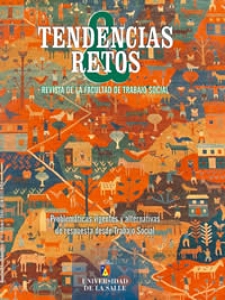Abstract
Interchange among human beings has special characteristics in pedagogic processes, especially, in the classroom where there is a main interlocutor with the authority of determining how and until when the communicative act is performed. In order to make research in real pedagogic communication settings in Dominican universities, not only was an exhaustive data gathering about didactic communication made in the light of current pedagogic paradigms, but quantitative and qualitative questionnaires (open and close surveys, focal discussion groups, interviews with teacher, students, and specialists) have also been implemented in two Dominican universities: APEC e INTEC. In the university context, where adult student professional training is to be predominant, the idea of developing more democratic education model (and of course, more equal communication patterns between teachers and students) is quite possible. Reality apparently shows otherwise in the Dominican context. A generation gap exist, like never before, that strongly effects the possible communicative competence on the teachers’ part so as to interact with students and play the role of educators in society. This gap and reluctance to accept it in order to overcome problems result in the absence of didactic communications in the Dominican Republic. Both teacher and student are strangers to each other.Downloads
Download data is not yet available.



